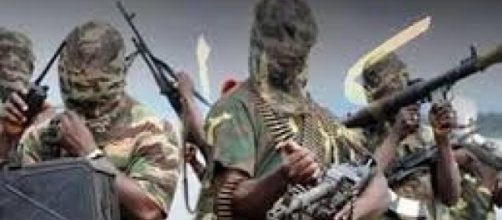The first that many in the United States and other western countries understood that even unsuspected African countries had problems with Moslem fanatics was when 200 school girls from Chibok town were kidnapped by members of the fanatical Boko Haram in 2014.
Western influenc
Boko Haram had been formed in 2002 with the aim of refusing any form of Western teachings in the country and like ISIS in the Middle East the intention was to revive a former caliphate in the region.
Its original name was in Arabic name, Jama'atu Ahlis Sunna Lidda'awati wal-Jihad, means "People Committed to the Propagation of the Prophet's Teachings and Jihad".
While the name shows the fundamentalist leaning of the group its adopted name of “Boko Haram” in the language of the western region of #Nigeria makes its intentions even clearer; “Western education is forbidden”.
Such was the wave of attacks and killings that followed the foundation the group was declared a terrorist group by the United States in 2013.
Tribes
The members of Boko Haram are clearly recognizable from their facial marks which clearly identify them as members of the Kanuri ethnic group and their accents in the local language further reinforce that fact that their battles are as much based on their ethnic origins as they are in their religions.
The kidnapping of the Chibok schoolgirls was simply and tragically a continuation of the centuries of struggles between the groups.
At one stage the Nigerian fanatics had tried to tie their activities to those of ISIS in Syria, but the wave of defeats that the presumptive Middle East Caliphate has suffered means that Boko Haram is now acting within its own ambitions rather than a wider Islamic fanatic plan.
In a strange twist to developments, the BBC reported this week that a Nigerian Moslem leader plans to issue a fatwa, an Islamic order, banning multiple marriages by members of the country’s Moslem population.
Polygamy in the country is not unusual, even amongst some Christians, but the Emir of Hano, Muhammad Sanusi wants the practice banned amongst those who do not have enough money to afford keeping the wives and children. Often the disaffected children of these familial arrangements have been providing recruits to Boko Haram, but to other disruptive forces in the country.
Sick President
While Nigeria is potentially a rich country with many natural resources, particularly oil, the country’s politics is dominated by ethnic and territorial divisions. This situation has deteriorated recently due to the bad health of national President Muhammadu Buhari has had an unsettling effect on the country in the light of its Presidential elections.
Although the country is now being governed by Vice President Yemi Osinbajo, his decision making powers are limited by the country’s Constitution and thus is unable to make more than routine decisions and is certainly unable to act should an emergency arise.
The inherent political uncertainty caused by the mystery surrounding the President’s health and the jockeying for position for the Presidential elections scheduled for 2019 mean that the country faces even more difficulties.
When dealing with foreign policy matters President Donald Trump would do well to bear in mind that countries such as Nigeria are potential traps for the unwary. The consequences of any missteps could well be violence that will not only cause deaths, but also add to the refugees and migrants seeking new lives in Europe, the United States and other advanced countries.
Simple slogans and solutions are not true answers to the uncertainties in these countries, only programmed assistance in helping the citizens find the right path to forming stable democracies. Any other solution would be a failure.

